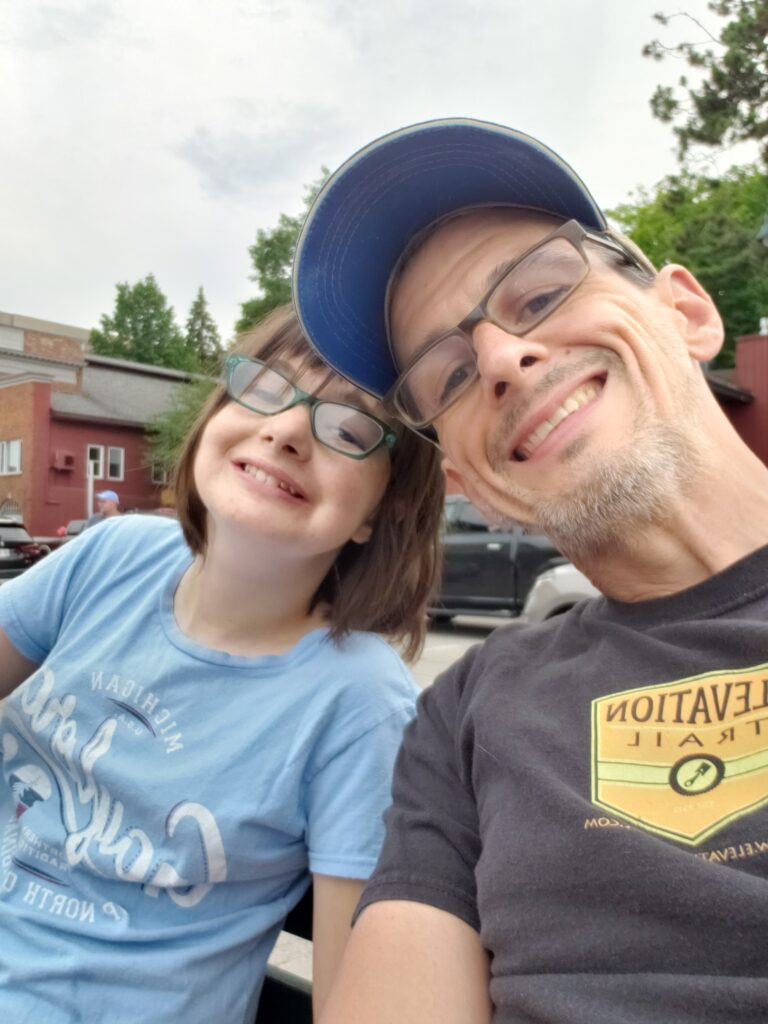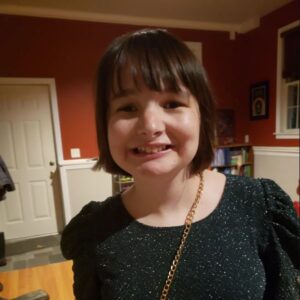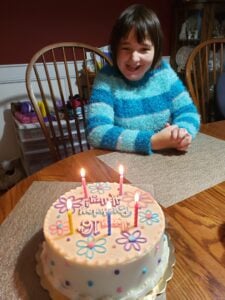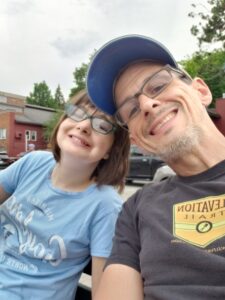 March is Trisomy Awareness Month, and Global Genes asked Gary David, a rare disease dad, caregiver, and advocate, to share his family’s experience with Trisomy 13 mosaicism.
March is Trisomy Awareness Month, and Global Genes asked Gary David, a rare disease dad, caregiver, and advocate, to share his family’s experience with Trisomy 13 mosaicism.
by Gary David
“I’ve never seen this before,” referring to my daughter’s diagnosis of Trisomy 13 mosaicism. It is not something you want to hear from your pediatrician, someone who has over thirty years of experience treating children.
At the same time, why would he have seen it? Trisomy 13 is rare enough, with only a 1/12000 to 1/29000 incidence rate at live births. Trisomy 13 mosaicism likely is more rare than that. Exact numbers are hard to nail down. With Trisomy 13 mosaicism, only some of the cells are trisomic. Thus, the impacts of that extra 13th chromosome are highly variable. A person might have T13m and not even realize it.
The parting words of our NICU doctor emphasized this, as he told us, “She’ll be somewhere in between significantly disabled and normal functioning.”
That is one heck of a range in which to place one’s expectations. While he wasn’t wrong with that prognosis, can’t you say that for every baby that is born? Can you imagine if those were the parting words for all new parents leaving the hospital? “Congrats on your new baby! It will be somewhere in between significantly disabled and normal function. Might grow up to do great things, or not. Good luck!”
As a final bit of advice, the doctor left us with “Enjoy the time you have with her.” So rather than looking forward to a lifetime with our child, we were now afraid to look past one day on the calendar.
This is the world that you join when you have a child who has a rare version of a rare condition. No one can really tell you much about what is going to happen, how things are going to turn out, or what kind of life your family will now have.
Parenting is about uncertainty no matter what. All parents leave the hospital not knowing how things will turn out. We are all in the same boat.
The difference is that we felt like our boat was already full of holes, with waves crashing over the sides. We felt like we needed to furiously bail out the water so we didn’t sink. Given how we felt at the time, it was kind of like emptying the ocean with a bucket: a lot of effort to make what felt like no progress.
So rather than bail water, you try to patch the boat. You search the internet for any information or material that gives you faith that things might be okay. You sign up for early intervention assistance, with progress reports going into your baby book. You string together visits with specialists, celebrating anything that is not bad news (or even might be good news). You join discussion groups, sharing milestones, experience, strength, and hope. You find what you can to get you through the day and into tomorrow.
Ultimately, you try to build a sense of normalcy out of a world that is unfamiliar. You move through this new space at first wishing things were different, and maybe moving into accepting that they are not. The supports that you build allow a foundation of a life to form.
If you have ever been involved in a construction project, you will know that the unexpected will happen. There will be delays, cost overruns, problems, frustrations, challenges. Eventually, with patience and perseverance, a foundation is laid, and a structure emerges. It probably won’t be perfect, and may not even meet your original expectations completely But it will be yours. You can focus on all that is wrong with it, or appreciate the warmth and welcome that it gives you.
It took me a long time to get to acceptance versus resentment. In recovery programs, the focus is on accepting that which you can’t control, and the courage to change the things you can. I couldn’t change my daughter’s diagnosis. I couldn’t change the challenges that it presented. I couldn’t make things how I wished they were. But I could change me, and in the process patch the biggest hole in my family’s boat.
I still don’t know what is going to happen in the future, which puts me in the same place as everyone else. I do know that Hailey has surpassed expectations. She is a source of joy, laughter, frustration, and exasperation, just like my other children. In the end, perhaps that is as “normal” as anyone can expect. For that, I’ll always be thankful.
Gary David, PhD is a Professor of Sociology and Experience Design at Bentley University. He co-hosts Experience by Design podcast. He speaks and writes about creating community and belonging, incorporating recovery, creating connections, and advocating for trisomy awareness. He is father to three daughters, two dogs, and chickens.

Stay Connected
Sign up for updates straight to your inbox.




